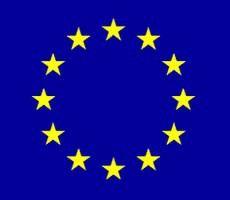- Home - News
- TWI News | TV
- Polls
- Year In Review
- News Archive
- Crime & Punishment
- Politics
- Regional
- Editorial
- Health
- Ghanaians Abroad
- Tabloid
- Africa
- Religion
- Election 2020
- Coronavirus
- News Videos | TV
- Photo Archives
- News Headlines
- Press Release
Business News of Monday, 11 November 2013
Source: B&FT
EU head urges fiscal rationalisation

Claude Maerten, the European Union’s most senior diplomat in Ghana, has said the country must intensify efforts at fiscal rationalisation to improve the economy’s performance and retain the confidence of donors.
Government must undertake important civil service reforms to realign public sector wages with revenues, and review tax exemptions to enhance spending efficiency, Mr. Maerten said in an interview with the Business & Financial Times.
He also worried about the rapid growth in the national debt, arguing that government can find innovative financing instruments to develop public infrastructure without resorting to borrowing.
“No country can survive with such a high percentage of total revenue used to pay government workers. This is not sustainable. This is really not sustainable. There is a need to look at how to limit or decrease the share of the wage bill in the revenue in future,” he said.
“We have also seen that the debt is increasing very fast. It has more or less doubled in five years. It is not sustainable in the long-run if it continues like that, because the interest on the debt today is about 25 percent of the revenue. That is also increasing the burden on this country as it tries to promote sustainable development. This should be addressed.”
Ambassador Maerten’s comments come as the country’s traditional donors -- among which the EU is the biggest benefactor -- begin to slowly release budgetary support funds that had been held back because of the worse-than-expected fiscal outcome last year.
Donors had expressed “shock” at the high budget deficit of 11.8 percent of GDP recorded in 2012, leading them to withhold monies promised to support the government’s budget in 2013. One Western diplomat told the B&FT in a separate interaction that about US$200million of aid was suspended due to the dramatic rise in the deficit.
Between 2008 and 2013, the EU committed about €500 million to support the country’s development, out of which 60 percent has been released so far -- with half going to supplement government’s expenditure plans in the budget.
Mr. Maerten said the EU is confident of assurances from government about measures being taken to reduce the deficit, which has paved the way for the bloc and its member-countries to release funds for 2013.
But he stressed that further measures must be taken to improve the fiscal situation. “Ghana needs to have important civil service reform. It currently has a high-level and professional civil service, but it can improve and better itself,” he said.
“The ghost-names on the payroll also need to be cleaned up, which will help to reduce the wage bill; and government and unions must negotiate salary increases that are compatible with the revenue generated.”
Mr. Maerten also urged government to widen the narrow tax-base and take a second look at tax exemptions, which increased by 23 percent in 2012 according to finance ministry data. The exemptions also accounted for 6.2 percent of tax revenue, the data showed.
“Tax exemptions are too much. When you look at the operations of Customs tariffs, there are too many companies that are exempted from tariff duty; meanwhile, that is one way to increase the revenue.
“It is good to have some free zones companies to spur economic activities, but if you have too many it can be worrying. What I hear from some reports is that there might be a need to review all these tax exemptions.”
On public infrastructure development, Mr. Maerten suggested that government utilise public-private partnership mechanisms to clear Ghana’s backlog of infrastructure needs. “What we are looking at --and I am pleased it is something that is being promoted by the Ministry of Finance -- is financial instruments that will not add to the debt of the country.
“Today in Ghana, if there is too little fiscal space to invest in public infrastructure, at least if these public investments are profitable there is a possibility of building some of them if the private sector is ready to assist. And I am sure the private sector is ready to assist, because Ghana is a regional hub promoting economic integration in West Africa.”










